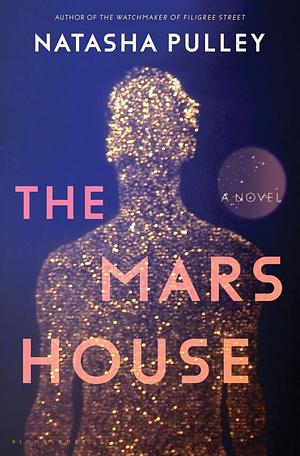Review: The Mars House
Okay, I’ve been agonizing over this review for literally months. Pulley’s writing here is absolutely beautiful, her characters compelling, her world intriguing. She makes things that absolutely shouldn’t make any sense – talking mammoths anyone? – feel entirely natural. I was captivated from beginning to end.
And yet. I have seen some legitimate criticisms of the way the book approaches its subject matter. The idea is that Mars is a human colony, specifically Chinese (although there are several cultural influences). Mars-born humans, being born in lighter gravity, are taller and generally more delicate than Earth-born humans. Earth-born humans (Earthstrongers) are comparatively extremely strong, enough so that a mere touch can pose a threat to a Martian, so they’re segregated from Martians. Our main character, January, is an Earthstronger refugee, while his love interest, Aubrey Gale, is a politician running on the platform of mandatory Earthstronger naturalization.
There is a LOT that goes on in this book. Probably too much. Fundamentally, the message is obviously meant to be one of cooperation and coexistence, but unfortunately it doesn’t land quite right. The fact that Earthstrongers are a legitimate threat to the well-being of Martians plays into (not deliberately, I don’t think, but nonetheless) the idea that real-life immigrants are somehow fundamentally threatening to the societies they seek to join, and it destabilizes the entire analogy, because any commentary you try to make on acceptance and equality from that point is coming from a skewed perspective. It means that suddenly, keeping a group of refugees confined in a camp is expressed as a sensible, compassionate act, when in the real world it is emblematic of some of the least welcoming countries in the world. I have to wonder if there was any sensitivity reading done by immigrant advocates, because I think there are a lot of small changes that should have been made to convey the message I think this book is trying to convey. I’m going to wrap up my discussion of this topic here because honestly there are other reviewers who have discussed it better.
Now, I have also seen some criticism of the way gender is handled. Martians have developed an entirely different gender system, in which everyone is referred to by “they” and everyone is effectively intersex (it’s described as lacking “extreme sex characteristics). I will say it was a bit disappointing to me initially to realize that this wasn’t a book with a non-binary love interest in a more conventional sense. That isn’t something that is seen that frequently, and I was looking forward to it. But I don’t think there’s anything inherently wrong with this approach to gender.
I’m going to preach a little bit here (but I’m non-binary so I’m entitled to preach on this topic). This approach is simply consistent with the view that gender is entirely socially constructed. Mars is a society in which society no longer chooses to construct a difference between man, woman, and other. Individuals might have particular understandings of themselves, particular preferences for gender presentation (and indeed we see individuals described in a wide array of gender presentations), but that understanding is not conveyed via pronoun (and there is an interesting linguistic rabbithole included in the book) or imposed by sex traits. And there is a school of thought that believes this is the logical outcome of a more progressive society. Another school of thought believes that gender identity would still be present without the socially constructed aspect of gender. In my opinion these are both legitimate ways to view humanity. There’s nothing wrong with the fact that Pulley drew on one to build this world. And as far as those who are complaining about it not making biological sense – intersex people exist! Just assume everyone is intersex! It isn’t hard!
I also want to gently push back on the idea that it’s problematic to describe a futuristic China as having imperialist goals. Anyone who studies Chinese history even a tiny bit knows that China has always been imperialist. It’s not a value judgment, just a fact. There’s nothing wrong with exploring a world in which China is the dominant cultural influence, not the US or Europe, or a world in which colonies push back against that influence. It would certainly be problematic if all the Asian characters were agents of the Chinese agenda, but that isn’t the case here. While there are things to criticize, I don’t think this is one.
In general I think the thing that would have benefitted this book most is actually cutting down on the number of perspectives. I think it would have been better served to focus primarily on January’s pov, maybe with an interlude into River’s to explain the backstory that comes up at the end of the book. But there was really no need for some of the perspectives that were brought up, and I think their inclusion was a bit of a shot in the foot. Everything should have been dialed in and thought through a little bit more.
One final note: I know that the scientific elements will drive some people nuts. I’m sure there are plenty of things that don’t make a lot of sense. Personally, I don’t find drilling down too far into the nitty gritty of how a futuristic world works terribly enjoyable or productive. So long as there aren’t major inconsistencies that interfere with the world’s continuity, I’m willing to suspend my disbelief. But I realize this isn’t the case for everyone. Just be warned.
Okay, this has been a lot, I know. I’ve elected not to give a star rating for this particular book, because I’m just too conflicted. There’s a lot that’s well done, but there’s a lot that’s poorly considered. If it sounds interesting, give it a read. Just be aware of what I’ve discussed above, and be mindful of what other reviewers have brought up.

Comments
Post a Comment